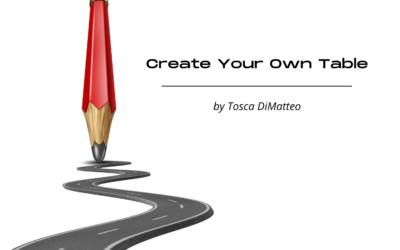I’ve said this multiple times before – and I’ll continue to advocate – that the greatest responsibility during this time of the Great Resignation, resides in the need for organizations to honor that this is their time for the Great Reset. I spoke to Jen Pestikas, host of the Brave Women At Work podcast, about the need for a Corporate Culture Revolution. Tune in for our invigorating conversation below. I also get excited about this because it’s an incredible time for a great reset for the workforce.
I was recently asked by a client: Who’s doing it right? What companies have a good company culture? Yep, you guessed it, she was on the hunt for a new place of employment. I think there is a more helpful conversation to be had here, but let’s not get ahead of ourselves quite yet…
For all of you out there who realized you deserve better than what your employer was offering, who decided to take your power back in search of greener pastures and joined the ranks of the great resignation movement – I’m elated and I’m your biggest cheerleader.
But here’s the thing – and I’m gonna be really honest with you here – if you haven’t examined what’s truly important to you, what your boundaries are and what behaviors are toxic to you in your assessment of greener grass, you’re in grave danger of finding yourself slogging away in a familiar mud pit in a few months’ time. Why? Because without that inner work – a reset of sorts – it’s highly likely that you’re going to meet the same people and the same patterns, in different packages.
I say this because, my friend, I was there. I kept fleeing – company to company and job to job. I kept pointing the finger out there, when all along I needed to point it at myself and inquire – what is it I need to change to stop this pattern? Yup, this is very much in parallel to realizing that your romantic relationships were going from bad to worse and coming into acceptance that the only consistency in it all was YOU.
Don’t get me wrong – there are partners that just won’t be a match and are not a fit for you, to keep that analogy going. And yes, there are toxic workplaces and there are bad bosses and horrendous leadership behaviors. But the REAL green grass is not so much connected to more courageous companies, more heart-led leaders and purpose-driven missions fueling it all. I’m all about seeking that utopia – but I also live in the real world of “we ain’t there yet ya’ll!”
Alas, the real green grass is found when you take a look at your own needs and realize you’ve got some changing to do to break those toxic patterns. Again, I speak from experience. I was walking around with my wounds on my sleeve – wounds of not feeling like I was enough, taking everything personally and simply letting my ego run my world. I also speak from the work I do with my clients – who come to me banging their head against the wall, wondering why they keep ending up in the same situation. The answer is not in applying to more jobs, different companies and finding the ‘perfect team’.
You want the real answer? You will come to know the dewy, fresh cut, emerald green grass below your feet with each step you take to love yourself MORE. Uuuuughh I know. Trust me, I know. There was a time I’d rather eat cardboard while sitting in a landfill than to walk the steps into self-acceptance and *gag* self-love. But let me break it down for you in some more digestible forms (pun intended).
- When you are well fed, you are more open to giving others your surplus of food
- When you can hold space for your own emotions, you will be better equipped to hold space for other people’s emotions
- When you can have empathy for your own experience, you have more capacity for empathy for others
- When you can honor your need for boundaries, you can respect the boundaries that others set for themselves
Are you catching my drift here? Honoring yourself more has a direct impact on being able to be in more healthy relationships with others. So, when you do this work and have more love for yourself, you can approach your environments from a healthier place. Which means you are more likely to let the little things go, focus more on what really matters, and get off of the drama triangle. And the drama triangle is a conversation for a whole other blog post! But I leave you with this cliffhanger question; Which role(s) do you have a tendency to play in your relationships; victim, persecutor or rescuer?
When we walk away from anything, be it a job, a company, a relationship or even that pint of ice cream… we owe it to ourselves to understand what we are shifting in ourselves. Because as you know, that is the ONLY thing we have control over.
Questions To Consider When Resigning
So, I’ll come back around to the beginning. If you are, or plan to be part of the great resignation I highly recommend asking yourself these questions:
- What healing am I longing for?
- What thought patterns are no longer serving me?
- What are my expectations of the greener grass?
- What is dead within me that I need to bring back to life?
- What boundaries do I need to put in place, to set myself up for success?
- What needs did I ignore in my last place of employment?
- Which of my most important values were not in alignment? What part did I play in that?
- If I’m saying no to the pint of ice cream, what am I saying yes to?
How To Inquire About Culture
Now that we addressed the bigger piece of the puzzle, I can support you in evaluating the grass that you choose to walk on next. Yes, what I mean is how can you help yourself in ensuring that your next place of employment is going to reflect a work environment that you want to be a part of. Here are my tips for that – which go deeper than asking the question ‘tell me about your culture’.
- Meet as many people as you can within the organization – especially those who you will interact the most with – to give you a strong sense of personalities and culture.
- Meet your ‘grand boss’ – meaning, your boss’s boss to get an understanding of how they operate and what’s important to them. Evaluate how that is or is not aligned with what your boss has expressed. Get curious with your boss about any perceived discrepancies – and inquire about if/what conflict has arisen in the past, or if it is anticipated.
- Ask for examples of individual behaviors (not their thoughts). For example:
- Tell me who has been successful here and what behaviors they have that have led them there.
- Tell me about the people who have been asked to leave in the past – what behaviors did they exhibit that did not align with company values?
- What has the company done in cases where an employee acted out of alignment with acceptable behavior?
- Ask about how the company has responded to things you care about. For example:
- How did the organization react to the events of the past 2 years?
- What do you think was done well?
- Where was the room for improvement and how is the company addressing that now?
- What are your thoughts about the employee-activist movement?
- How did the organization react to the events of the past 2 years?
- What are your on and off-boarding processes?
- Understanding how people are treated in the beginning and the end are a good indicator of what is valued.
- Ask what success looks like.
- Understand expectations for 3 months, 6 months, etc.
- Ask what failure would look like, and what your boss fears the most in making the next hire?
Yes, greener grass is entirely possible. And it is absolutely GUARANTEED if you choose to see that you are the grass. I know, so very meta. But also, I find that extremely liberating.
If you want to truly take advantage of this great resignation and find that lush, dewy, vibrant grass that is within you OR if you’re a team leader who wants to create workplaces that employees don’t want to leave, schedule a complimentary exploratory call here.
Lastly, I would like to say a big thank you to a very special person (you know who you are) who inspired me to step into the joy and awe of this topic.






Recent Comments